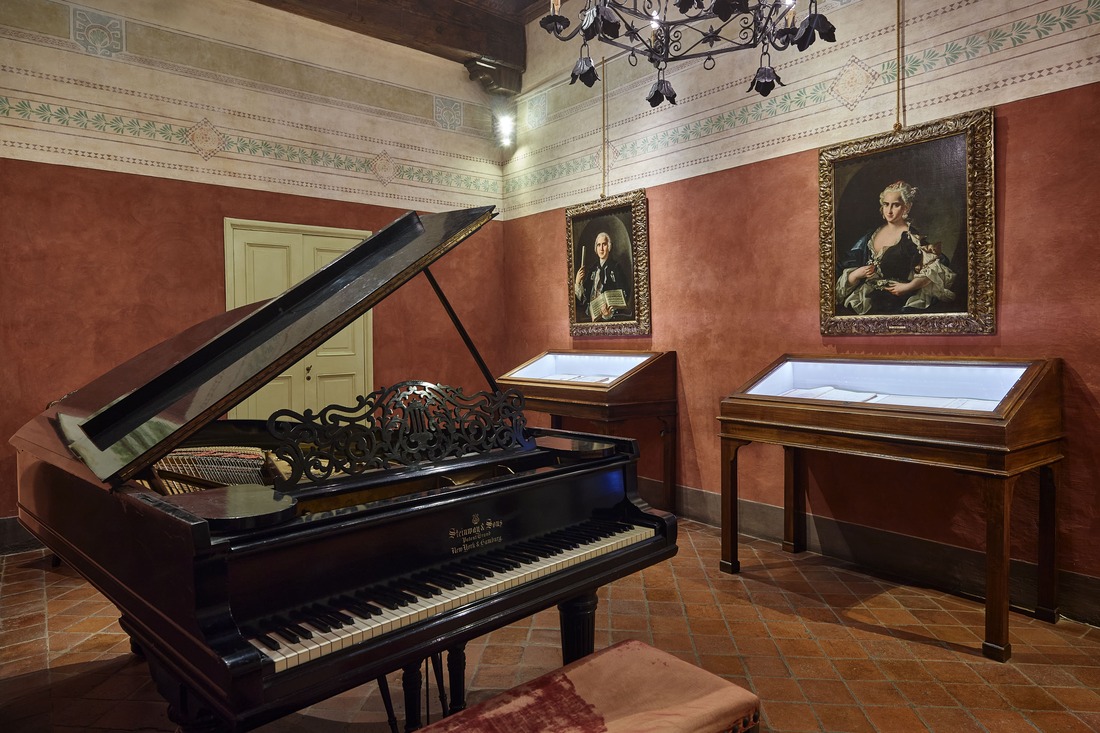By Our Editorial Staff
Photo Puccini Museum by Andrea Pistolesi
In the heart of the historic centre of Lucca, among timeless alleys and atmospheres of other centuries, there is a place where music still seems to resonate within the walls: the Puccini Museum – Birthplace, an unmissable stop for anyone who wants to get to know the life and work of one of the greatest composers in history, Giacomo Puccini. Located just a few steps from the lively Piazza Cittadella, the museum is located right in the house where the Maestro was born on December 22, 1858 and lived until he was 22 years old. A place that, thanks to the careful work of the Giacomo Puccini Foundation, is now the custodian of his artistic and family memory.
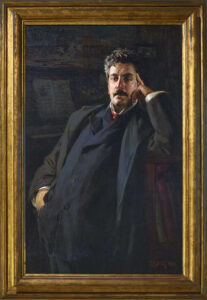 The house was transformed into a museum in 1979, thanks to a donation from Rita Puccini Dell’Anna, the Maestro’s daughter-in-law. In 2010, a careful philological restoration brought the building back to its original structure, creating an evocative exhibition itinerary that develops through twelve rooms.
The house was transformed into a museum in 1979, thanks to a donation from Rita Puccini Dell’Anna, the Maestro’s daughter-in-law. In 2010, a careful philological restoration brought the building back to its original structure, creating an evocative exhibition itinerary that develops through twelve rooms.
Giacomo Puccini’s ancestors were all musicians and leading figures in the city’s culture. For over a century, from the mid-eighteenth century until the death of Michele, Giacomo’s father, in 1864, they held the main musical positions in the city of Lucca. The house was purchased around 1815 and since then it has become the place of reference for the family, who had left the town of Celle – the original place of the Puccini family – for a few decades already.
Visiting the museum means immersing yourself in Puccini’s universe through documents, scores, autograph letters, photographs and objects of biographical and symbolic value. The musical training, the artistic rise, the passions and the most intimate aspects of the composer’s personality are told with documentary rigor and narrative emotion. Among the pieces on display are the autograph of the Messa a Quattro Voci – a work that earned him a diploma from the Musical Institute of Lucca – the letters with Giulio Ricordi and his collaborators, but also family correspondence, friendships and hunting with his companions.
The Music Room houses the famous Steinway & Sons piano, purchased in 1901, on which the Maestro composed much of his operas, including Turandot. The most iconic portraits of Puccini, a symbol of his international success, can be seen in the Dining Room and the Birthplace. The last room of the museum preserves the sumptuous costume of the second act of Turandot, worn by Maria Jeritza at the premiere of the opera at the Metropolitan in New York in 1926 and donated by her to the museum.
The visit experience is made even more engaging and accessible thanks to multimedia supports, audio guides and an interactive tablet with video guide in LIS (Italian Sign Language). In addition, a large part of the documentary archive can be consulted online through the museum’s website.
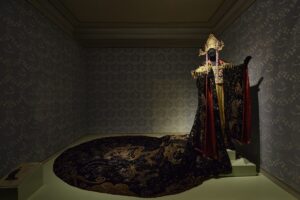
Visiting Giacomo Puccini’s birthplace in Lucca means taking a deep journey into the composer’s sensitivity: an experience that goes beyond music, touching the strings of intimacy and memory. But to fully understand the roots of his genius, it is necessary to continue towards the hills of Lucca, up to the small village of Celle dei Puccini, a hamlet in the municipality of Pescaglia.
Here, surrounded by greenery and quiet, is the family home of the Puccini dynasty, now transformed into a museum that tells the deep origins of a lineage of musicians. The house, a sixteenth-century residence, has seen generations of artists born and grow, preserving the most authentic and rural soul of the family. Thanks to the generosity of his granddaughters Albina and Nina Puccini, who donated memorabilia, furnishings and precious documentary heritage, the Lucchesi nel Mondo association transformed the ancestral home into a museum inaugurated in 1976.Completely rearranged in 2008 on the occasion of the 150th anniversary of the Maestro’s birth, the exhibition is spread over two floors, with seven thematic rooms and a museum cellar, where the domestic and artistic dimensions are intertwined. On the ground floor are exhibited objects of great emotional and historical value: the piano on which part of Madama Butterfly was composed, the laurel wreath received for Le Villi, the Maestro’s favourite armchair and a gramophone donated by Thomas Edison. Also on the same floor is the original kitchen, with wooden floors, stone sink and period utensils: concrete testimony of peasant everyday life.
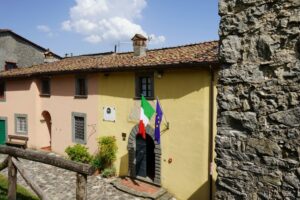
Each room tells a part of the composer’s life: the entrance hall welcomes visitors with the family tree and portraits of ancestors; in the bedroom the bed where Giacomo was born is still preserved; on the upper floor, the family room and that of his sister Ramelde exhibit photographs, letters and musical notes, revealing the deep affection for the village of his birth. Particularly evocative is the room of affections, with the baptismal robe, period documents and the precious “Codex of Celle”, a seventeenth-century manuscript for music and basso continuo. In 2024, the new Centenary Room was also inaugurated, dedicated to Puccini’s last visit to Celle and the days before and after his death.
The cellar, now renovated, has become a multifunctional space that hosts concerts, temporary exhibitions and cultural meetings. Every summer, the square in front comes alive thanks to the “Cells under the stars” festival which for more than forty years has been offering highly anticipated and appreciated opera concerts with free admission.
Visiting Lucca and Celle means discovering two complementary souls of Puccini’s world: the urban and intellectual of his youth, and the rural and affective of his origins. Together, these places offer a complete and intimate portrait of Giacomo Puccini, taking visitors on a journey where music is intertwined with life, and memory becomes melody.
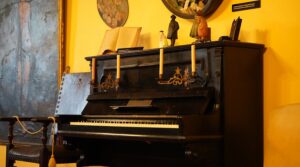
For information on opening hours, tickets, accessibility and museum activities:
– Puccini Museum – Birthplace, Lucca – www.puccinimuseum.org – Tel. (+39) 0583 584028 – info@puccinimuseum.it
– Museo Puccini di Celle dei Puccini, Via Meletori 27, Celle dei Puccini, Pescaglia (Lu) – www.museodicelledeipuccini.it – Tel: (+39) 320 6077784 – info@museodicelledeipuccini.it
